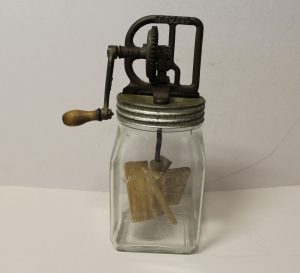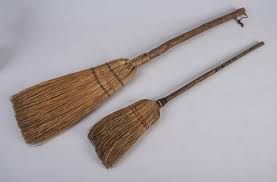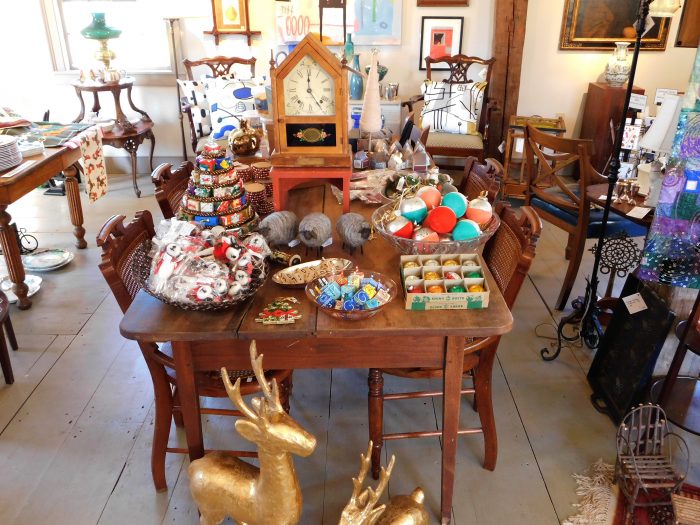
There are lots of great gifts and wonderful bargains. We have some unique items for Christmas and Hanukah, as well as art, jewelry, toys, stocking stuffers, vintage and antique items – and most important, chocolate gold coins! The place is absolutely packed! (Just remember to bring your mask.) |
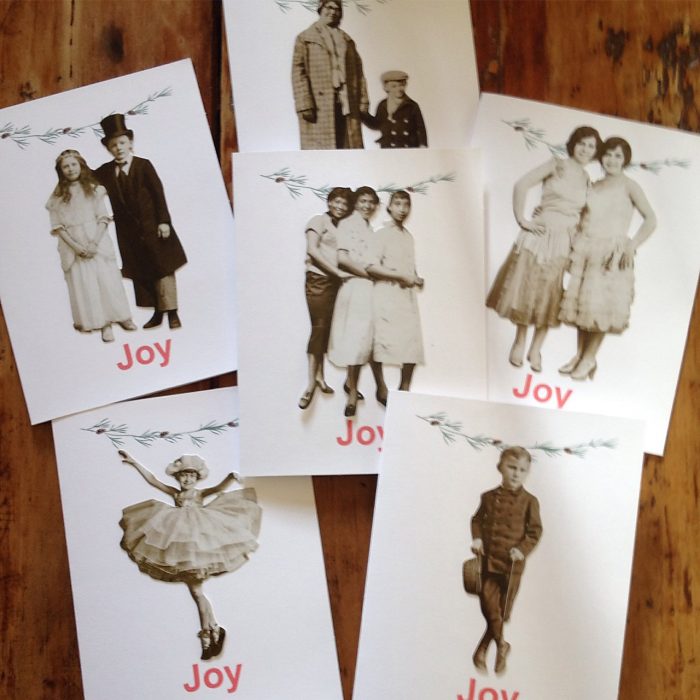
Thanksgiving Food from our past (some a bit questionable)

We love vintage ads, they are actually great historical documents. Here we’ve picked a few Thanksgiving ads from the 1940’s thru 1970’s. Please note that we have not tested any of the recipes, so you’re on your own.
| Why bother with all those pesky fresh vegetables? Simply throw everything together into one loaf! |

| A new way to serve cranberries: |

| It probably tastes great (with all those marshmallows), but we’ve seen better presentations. |
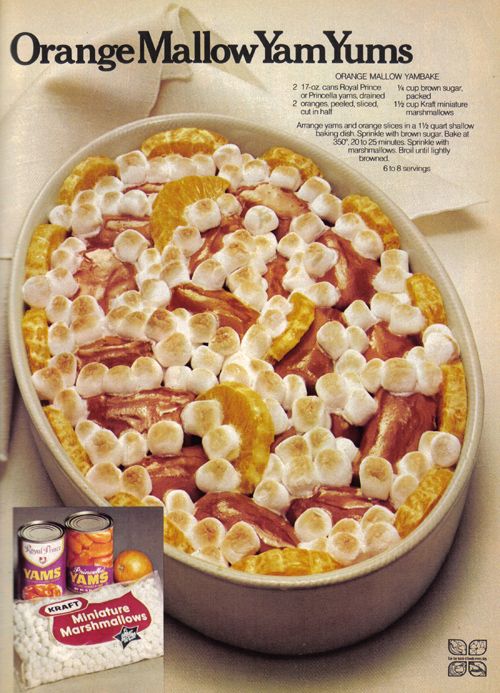
| If you’ve waited too late to buy that turkey, there’s always Spam. |

| Yet, more ways to serve cranberries. We have never seen a recipe quite like this one — surely it deserves some kind of an award! |

| Who knew that Dr. Pepper could be served as a warm punch? |

| This may be a better option: |
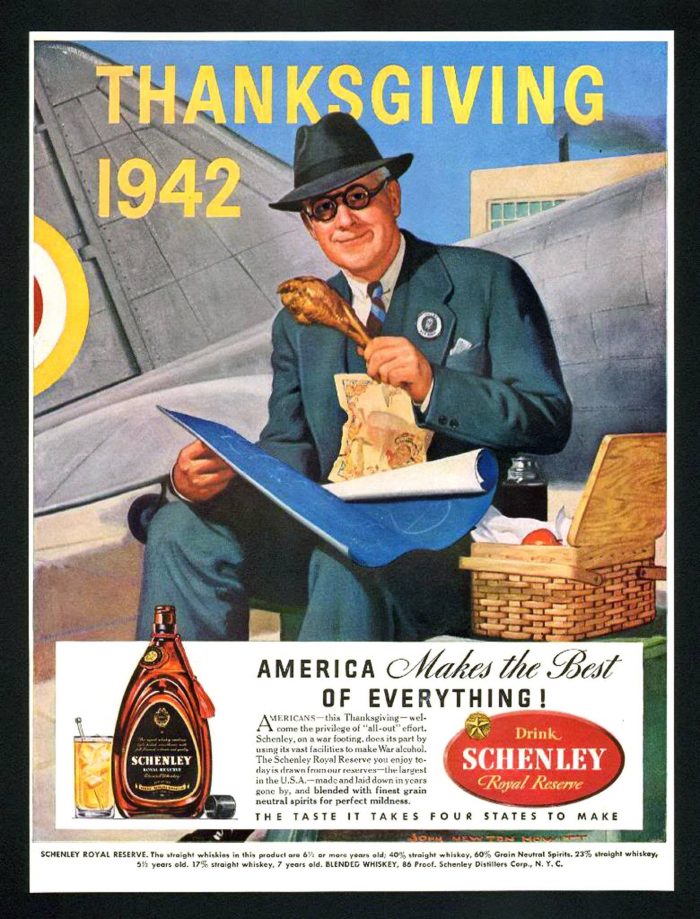
| Jello is always festive and offers the best solution as to what to do with all those leftovers. |


| When all else fails, there are always good old-fashioned TV dinners. |
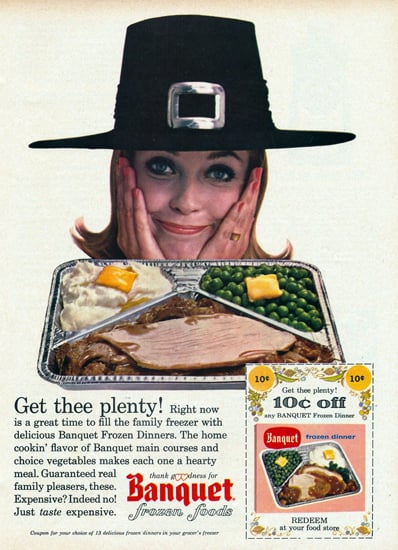
Notes From MRS. RUNDELL
| Mrs. Frank Rundell, Sr. wrote a column for The Chatham Courier, focused on life in Spencertown, from the 1940’s through 1972. |

| The store was filled with Thanksgiving shoppers when a woman was heard to say, “Oh I almost forgot the cider! Can’t have Thanksgiving dinner without that!” So the lady goes happily on her homeward way, her jug of pasteurized cider snuggled in between the frozen turkey, prepared dressing, various mixes, frozen vegetables, five pounds of potatoes, and three pounds of apples. One’s mind, however, goes back to the days of yesterday when fertile farms of the Punsit Valley had filled the barns with hay and grain, the cellars with apples and vegetables, nuts were in the attic, corn was in the bin, and several cider mills were running full time. Load after load of apples were being shoveled into bins from which they rolled down and were caught between two rollers studded with nails. The ground-up apples with the juice were emptied into a huge vat which, when full, was allowed to stand overnight. Then it was pressed between wooden racks and layers of burlap. (The best cider was made by using rye straw instead of burlap.) When the barrel of cider was brought home from the mill it was put in the backyard and the bung taken out. Here it remained until it worked itself clear, usually so timed that by Thanksgiving the cider was a cold, clear, breezy, sparkling drink… “fit for the Gods!” |
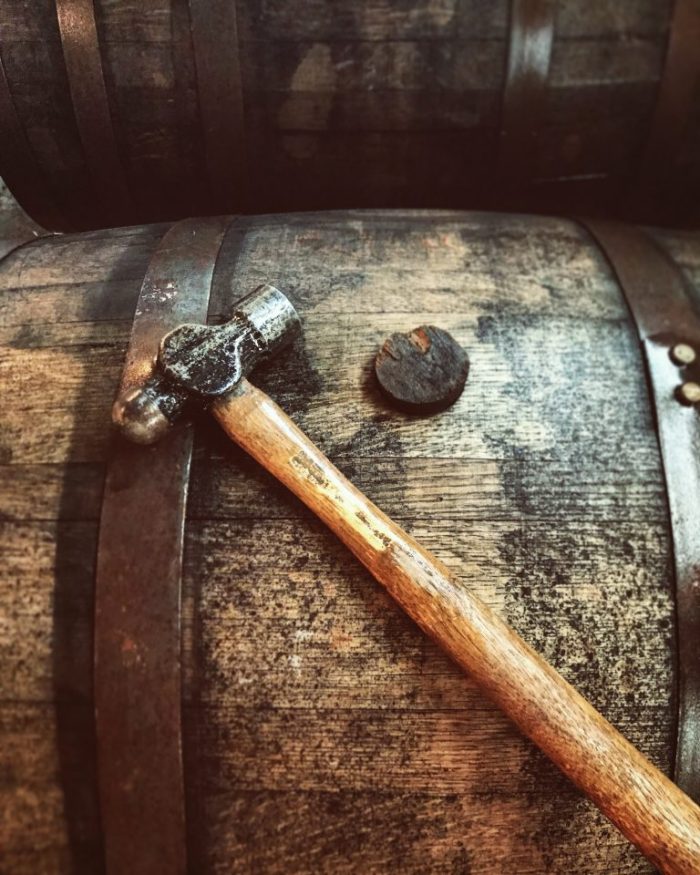
| However, there was another angle to this cider making. Not every barrel was brought home; some were left at the mill and allowed to turn into hard cider or applejack. The rule for making the latter was “frozen twice and twice drained.” Since in some homes a man’s wife would not allow either of these drinks in the cellar, the friendly cider maker helped the individual in whose home such a condition existed by storing his extra barrel of cider in his own cellar. Each barrel or keg had the owner’s name on it. Each had a glass on top, and, on occasion, when coming to town or drawing logs to the mill on a cold winter day, a man would stop by, go down the cellar…the outside way…draw a glass of his special brew and from a bag of eggs which he had stored there, take one, break it in the cider, and drink it down. A man whose father once operated a cider mill in Spencertown and who obligingly came to the rescue of his restricted brothers by harboring their barrels of secret sin, said, “I never lost the opportunity of going down the cellar with these men when they came in for their drink, for I was completely fascinated watching the yolk of the egg go down their throats.” Since the eggs used in this drink were secretly acquired, they were obtained by devious means. Fall and winter eggs were scarce, and the farmer’s wife knew which hens were laying and just about how many eggs she might expect to find in the nests. So, one Thanksgiving morning in a home where the Missus frowned upon any cider drinking that was more than four weeks old, friends and relatives were gathering to celebrate this national holiday with its traditional dinner. The farmer had unharnessed the minister’s horse and was tying it in an unused stall, a spare so to speak, when glancing down, he saw underneath the manger a nest of eggs. He gathered them in his hat, one dozen there was, with the bloom of fresh egg still on them. |
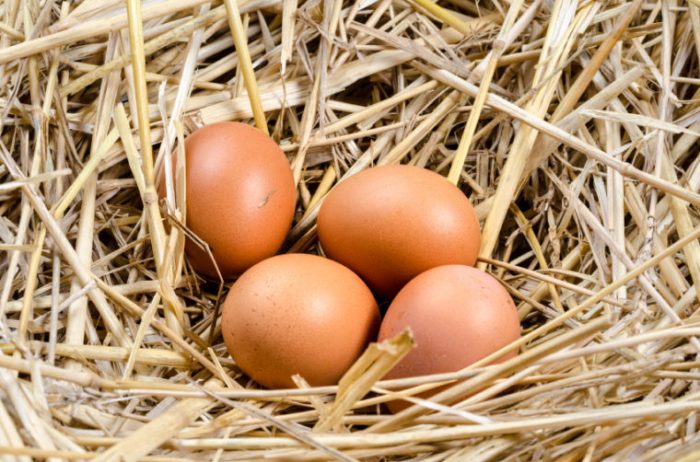
| He stood viewing his find and began arguing with himself. Mary had wanted more eggs for Thanksgiving cooking, but it was too late now. He didn’t dare buy eggs at the store…somehow she would find out. Hadn’t the minister’s horse led him to them? Wasn’t he supposed to be thankful today for his blessings? Well, this sort of blessing. Then came the thought of the cold barrel of apple beverage and he closed the argument by hiding the eggs in the oat bin. He walked briskly to the house and as he took his place at the head of the Thanksgiving table, this good man, loving husband and father, kin and obliging neighbor and friend, with a twinkle in his eye and a song in his heart, said, “Dominie, will you ask the blessing?” |




